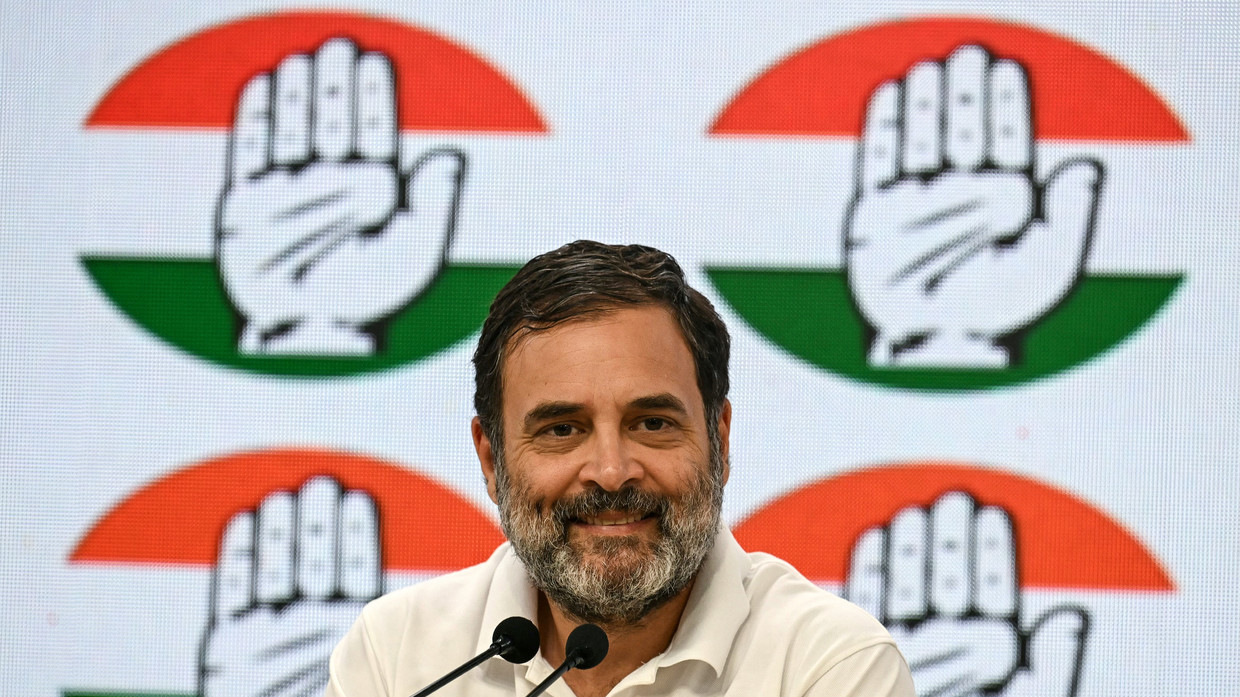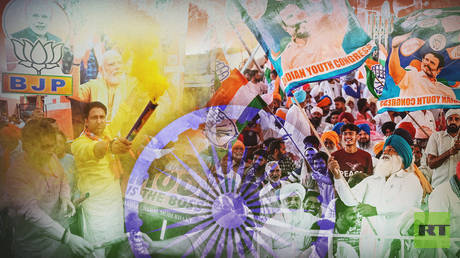Rahul Gandhi, the leader of the Indian National Congress, was elected on Tuesday as the leader of the Indian opposition, his party has announced.
Gandhi, 54, a fierce critic of the Prime Minister Narendra Modi-led government, won the recently-concluded parliamentary elections from two constituencies – Wayanad in the southern state of Kerala and his family stronghold of Rae Bareli in Uttar Pradesh, known as the Hindu heartland.
The Congress Party made significant gains overall in the general election, winning 99 seats, while the opposition Indian National Developmental Inclusive Alliance (INDIA) bloc, which is spearheaded by the party, won over 200 seats, defying expectations.
The Modi-led Bharatiya Janata Party (BJP) lost its absolute majority and had to rely on allies in the National Democratic Alliance (NDA) to form a coalition government. The National Democratic Alliance (NDA) secured the majority of seats (293) in the 543-seat lower house of parliament (Lok Sabha).
Gandhi’s appointment as leader of the opposition is significant – in the past decade, following the elections in 2014 and 2019, the Congress Party was not able to nominate its candidate for the crucial post as it did not have enough seats in the Lok Sabha.
”We are confident that as [leader of the opposition], Rahul ji will be a bold voice for the common people of India and ensure that the NDA government is held firmly accountable at all times,” senior Congress Party leader KC Venugopal posted on X (formerly Twitter).
The day he was sworn in as MP, Gandhi promised that the “opposition will continue its pressure, raise the voice of the people and will not allow the prime minister to escape without accountability.”
On Wednesday, Modi and Gandhi were seen shaking hands in parliament, shortly after NDA candidate Om Birla was elected speaker of the 18th Lok Sabha. “The government has political power, but the opposition also represents the voice of India’s people,” Gandhi said in his first speech in the ongoing parliament session. “This time, the opposition represents significantly more voice of the Indian people,” he said, expressing hope that the house will function well.
Among the key issues the opposition plans to raise during the first session of the newly elected parliament are railway safety following a recent deadly incident, alleged irregularities in the central examination that left millions of young people aspiring to college studies in uncertainly, high inflation, and a lack of employment opportunities in the country, which currently has world’s highest pace of economic growth.
Days after the recent vote concluded, Gandhi also demanded a parliamentary investigation into a stock market crash after the election results were declared, claiming that Modi gave “misleading” investment advice. Around $380 billion in Indian stock market value was erased after the election, owing to the BJP’s poorer-than-expected showing.
Gandhi is descended from Jawaharlal Nehru, the first prime minister of India, and is the son of Rajiv Gandhi, another former prime minister who was assassinated in 1991. His mother, Sonia Gandhi, is a former president of the Congress Party.
In 2022, Gandhi launched the ‘Bharat Jodo Yatra’ (Unite India March), which spans over 4,000km from Kanyakumari on India’s southernmost tip to the northernmost Jammu and Kashmir in 150 days. In the aftermath of the political pilgrimage, the party won crucial elections in the states of Karnataka and Telangana.
Ahead of this year’s general election, Gandhi launched another march from Manipur in the northeast to Maharashtra in the west. According to the party’s leadership, the movement sought to “prioritize the pursuit of social, economic, and political justice for the nation’s citizens.”
Where India Meets Russia: Follow and share RT India on X and Instagram


